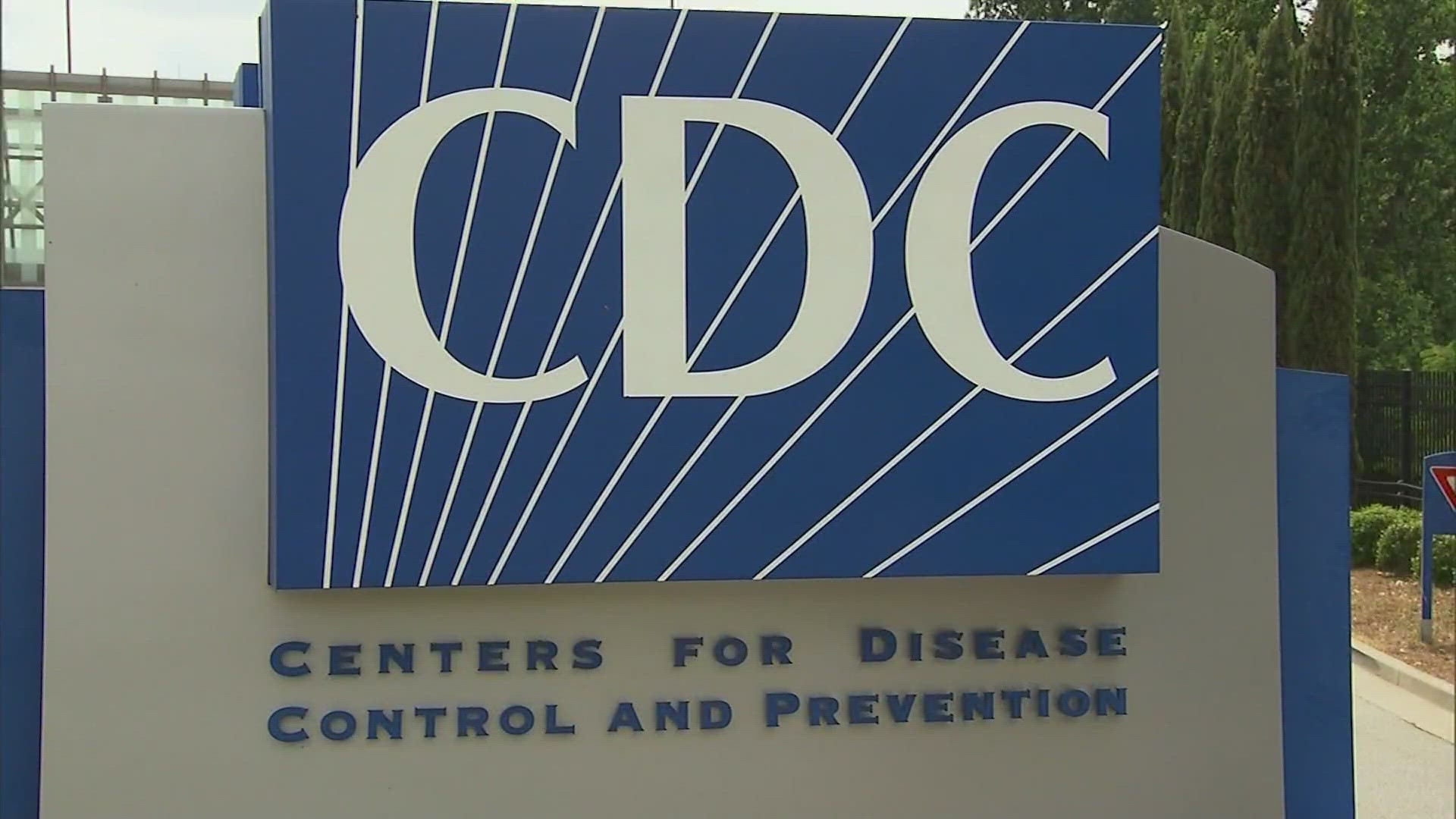HOUSTON — Whether it’s concerns over the coronavirus or losing your job, anxiety levels are running high for many people in Houston.
Lawona Zathorne says she just lost her job as a nursing assistant and she's trying to get help.
"I lost my job, can't pay bills, no food, it’s just a lot and, car note, everything,” Zathorne said.
Mental health professionals are seeing an increase in people looking for help
"And we know, from our experience, that in maybe three to four weeks, the isolation is going to start becoming an issue and could seriously lead to major depression," Naomi Madrid, executive director of Crisis Intervention of Houston, said.
She said their crisis hotline has been getting busier in recent days.
People have also been contacting other agencies.
"They're experiencing trauma (and) the biggest thing is the loss of our sense of safety," Kara Hill, of Mental Health America of Greater Houston, said.
The people with Mental Health America of Greater Houston and Crisis Intervention of Houston say if you need help, call them.
They say there are resources and someone to talk to.
In the event of a psychiatric emergency:
- Dial 911 and request a Crisis Intervention Team or CIT Officer
- Go to MHMRA Neuropsychiatric Center (NPC) — 24 hour emergency psychiatric facility
1502 Taub Loop, Houston, TX 77030
713-970-7070 - Federally Qualified Health Centers (FQHCs) or other low-cost clinics
Gateway to Care Navigators: dial 713-783-4146 to find the closest FQHC - Harris Health Behavioral Health Program (multiple locations)
Eligibility: 713-566-6509
Appointments: 713-526-4243
harrishealth.org
In the event of a non-emergency, contact:
- Legacy Community Health (multiple locations)
713-351-7360
https://www.legacycommunityhealth.org/services/behavioral-health/ - The Harris Center for Mental Health and IDD (multiple locations)
713-970-7070
Eligibility: 713-970-4444
http://www.mhmraharris.org/Mental-Health-Outpatient-Services.asp
For more resources please contact the United Way of Greater Houston by dialing 2-1-1 for information and referral services.
THE HOTLINE: 832.416.1177
TEEN: 832.416.1199 (CALL)
TEEN: 281.201.4430 (TEXT)
Coronavirus symptoms
The symptoms of coronavirus can be similar to the flu or a bad cold. Symptoms include a fever, cough and shortness of breath, according to the Centers for Disease Control. Some patients also have nausea, body aches, headaches and stomach issues. Losing your sense of taste and/or smell can also be an early warning sign.
Most healthy people will have mild symptoms. A study of more than 72,000 patients by the Centers for Disease Control in China showed 80 percent of the cases there were mild.
But infections can cause pneumonia, severe acute respiratory syndrome, kidney failure and even death, according to the World Health Organization. Older people with underlying health conditions are most at risk for becoming seriously ill. However, U.S. experts are seeing a significant number of younger people being hospitalized, including some in ICU.
The CDC believes symptoms may appear anywhere from two to 14 days after being exposed.
Human coronaviruses are usually spread through...
- The air by coughing or sneezing
- Close personal contact, such as touching or shaking hands
- Touching an object or surface with the virus on it, then touching your mouth, nose or eyes before washing your hands.
Help stop the spread of coronavirus
- Stay home when you are sick.
- Eat and sleep separately from your family members
- Use different utensils and dishes
- Cover your cough or sneeze with your arm, not your hand.
- If you use a tissue, throw it in the trash.
- Follow social distancing
Lower your risk
- Wash your hands often with soap and water for at least 20 seconds. If soap and water are not available, use an alcohol-based hand sanitizer.
- Avoid touching your eyes, nose, and mouth with unwashed hands.
- Avoid close contact with people who are sick.
- Clean and disinfect frequently touched objects and surfaces.
- If you are 60 or over and have an underlying health condition such as cardiovascular disease, diabetes or respiratory illnesses like asthma or COPD, the World Health Organization advises you to try to avoid crowds or places where you might interact with people who are sick.
Get complete coverage of the coronavirus by texting 'FACTS' to 713-526-1111.



